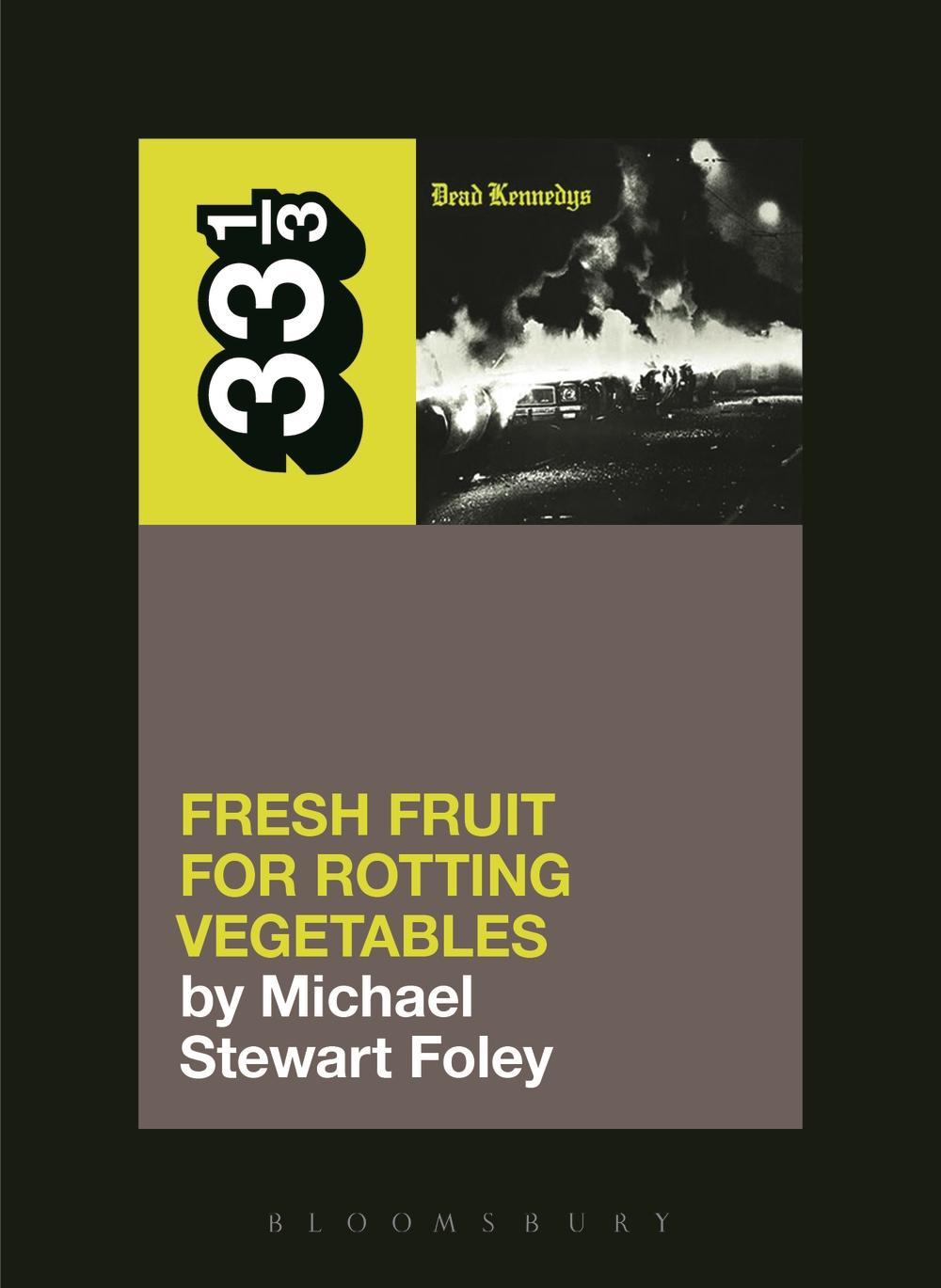Dead Kennedys' Fresh Fruit for Rotting Vegetables

Dead Kennedys' Fresh Fruit for Rotting Vegetables
In the year that followed this season of insanity, it made sense that a band called Dead Kennedys played Mabuhay Gardens in North Beach, referring to Governor Jerry Brown as a "zen fascist," calling for landlords to be lynched and yuppie gentrifiers to be sent to Cambodia to work for "a bowl of rice a day," critiquing government welfare and defense policies, and, at a time when each week seemed to bring news of a new serial killer or child abduction, commenting on dead and dying children. But it made sense only (or primarily) to those who were there, to those who experienced the heyday of "the Mab."
Most histories of the 1970s and 1980s ignore youth politics and subcultures. Drawing on Bay Area zines as well as new interviews with the band and many key figures from the early San Francisco punk scene, Michael Stewart Foley corrects that failing by treating Dead Kennedys' first record, Fresh Fruit for Rotting Vegetables, as a critical historical document, one that not only qualified as political expression but, whether experienced on vinyl or from the stage of "the Mab," stimulated emotions and ideals that were, if you can believe it, utopian.
PRP: 71.93 Lei
Acesta este Pretul Recomandat de Producator. Pretul de vanzare al produsului este afisat mai jos.
64.74Lei
64.74Lei
71.93 LeiLivrare in 2-4 saptamani
Descrierea produsului
In the year that followed this season of insanity, it made sense that a band called Dead Kennedys played Mabuhay Gardens in North Beach, referring to Governor Jerry Brown as a "zen fascist," calling for landlords to be lynched and yuppie gentrifiers to be sent to Cambodia to work for "a bowl of rice a day," critiquing government welfare and defense policies, and, at a time when each week seemed to bring news of a new serial killer or child abduction, commenting on dead and dying children. But it made sense only (or primarily) to those who were there, to those who experienced the heyday of "the Mab."
Most histories of the 1970s and 1980s ignore youth politics and subcultures. Drawing on Bay Area zines as well as new interviews with the band and many key figures from the early San Francisco punk scene, Michael Stewart Foley corrects that failing by treating Dead Kennedys' first record, Fresh Fruit for Rotting Vegetables, as a critical historical document, one that not only qualified as political expression but, whether experienced on vinyl or from the stage of "the Mab," stimulated emotions and ideals that were, if you can believe it, utopian.









